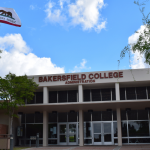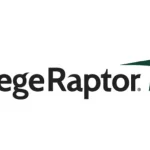Higher education institutions and their students are increasingly turning to AI-backed technologies, such as 2-way SMS texting and chatbots, for communications that extend the reach of staff’s personalized “high touch” efforts.
Frustrating experiences – such as waiting on hold for a staff member, driving to campus only to see a long line of students waiting for help, or making a phone call to the school only to learn that the office closed an hour earlier – may soon be a thing of the past. Or at least greatly reduced. Colleges and universities are improving the student experience by changing the way they communicate and engage with students.
Here are just a few of the ways that AI-powered tools such as two-way texting, chatbots and live chat are being deployed to improve the student experience, reduce barriers to student success and enable staff to focus on more meaningful interactions. We call it the Student Engagement Flywheel.
1) Student Outreach: AI-backed two-way SMS text messaging capabilities.
When SMS texting is paired with artificial intelligence, something special is afoot. This technology enables staff to “scale the personal touch” without crushing staff bandwidth. How?
The answer lies in the versatility of the technology. Want to send text messages to a small group of students, admits or alumni with a reminder or a question? Use the platform to conduct an “agent-backed” campaign that enables staff to handle back and forth texting with students.
Conversely, want to send a blast email to a larger group, but worry that your staff won’t have capacity to respond in a timely manner to all of the responses? No problem. Use the platform to conduct a “bot-backed” campaign, and let the AI handle the back and forth with students or guide them through a predetermined conversation that is shaped by the engagement students have with the bot.
2) Student Support: Artificially intelligent (AI) chatbots, as well as live chat.
Create a 24/7 service and support function for students needing virtual assistance. Do away with the traditional idea of “office hours.”
Leverage your greatest asset – your human resources – where it is best used: improving work-flows and spending time with students when it really counts.
Leverage an AI chatbot to extend the reach of staff. Turn it on as a first-line of defense in answering student questions and facilitating appointment scheduling. Use it after-hours to provide students with quick answers, rather than making them wait until the office reopens the next day.
Use AI-backed live chat for when the bot is stumped. Hand off the conversation to an available and appropriate staff member who can guide the student to resolution. Or, be even more strategic – lead with live chat when you are appropriately staffed to do so, and believe that is the best way to engage students during those hours. Then, use the AI to provide agents with consistent information to draw upon when answering student questions in real time.
3) Student Education: Video explainers.
There is significant value in providing clear, easy-to-digest resources in every communication. Do not overwhelm students. Rather, take care to provide supplemental resources – especially short online videos to connect with visual learners – so students can quickly grasp topics that are more challenging for them. Vendors, such as Ocelot, have libraries of online video content covering critical topics such as state and federal aid that can enable staff – without minimal lift – to enhance communications with videos and guide students through complicated tasks.
4) Data Analysis: Predictive Analytics.
Technology facilitating these engagements yields insightful data allowing schools to analyze behavior and place students into subsequent outreach flows to further nudge students successfully forward in their educational journey. Use triggers to determine when a reminder or quick poll (to a student or subset of students) might prove to be a timely interaction and help steer a student back toward a positive path. Analytics then provide the necessary insights to help learn which tactics are the most impactful, the best times to run activities, and which ones are most appreciated by students and prospects.
5) A holistic communication approach that accelerates the student journey from prospect to applicant to enrolled student.
It is important to remember technology is not a solution in and of itself. It is most effective when it is part of a larger strategy.
Think about texting for a minute. Texting has a roughly 98% open rate vs. 30% for email. Texting can deliver immediate, timely impact. When time is short, text messages reminding students of deadlines and outstanding tasks needing their attention will have a far greater impact than email.
Think about all the paperwork students need to complete in order to enroll. It can be overwhelming. AI chatbots can be a useful tool to have a part in the overall workflow. Direct students to ask the chatbot “What forms do I need to complete?” The chatbot can then provide a personalized answer that lists the remaining forms and can guide students through completing them.
The Wrap
The key to increasing enrollment and retention is doubling down on student engagement – which requires a commitment to a strategy (and the appropriate technology) to help support it. While there is certainly more than one approach it boils down to covering your bases on student outreach, support, education (non-academic) and analytics.
The Student Engagement Flywheel can help your institution strategically implement a 360-degree approach – empowering your institution to both serve and support students (and lead them to success) proactively and reactively to ensure no one falls through the cracks. Remember, the appropriate tools and technology, coupled with a thoughtful strategy and staff support, can help accelerate the path to higher levels of student engagement.















